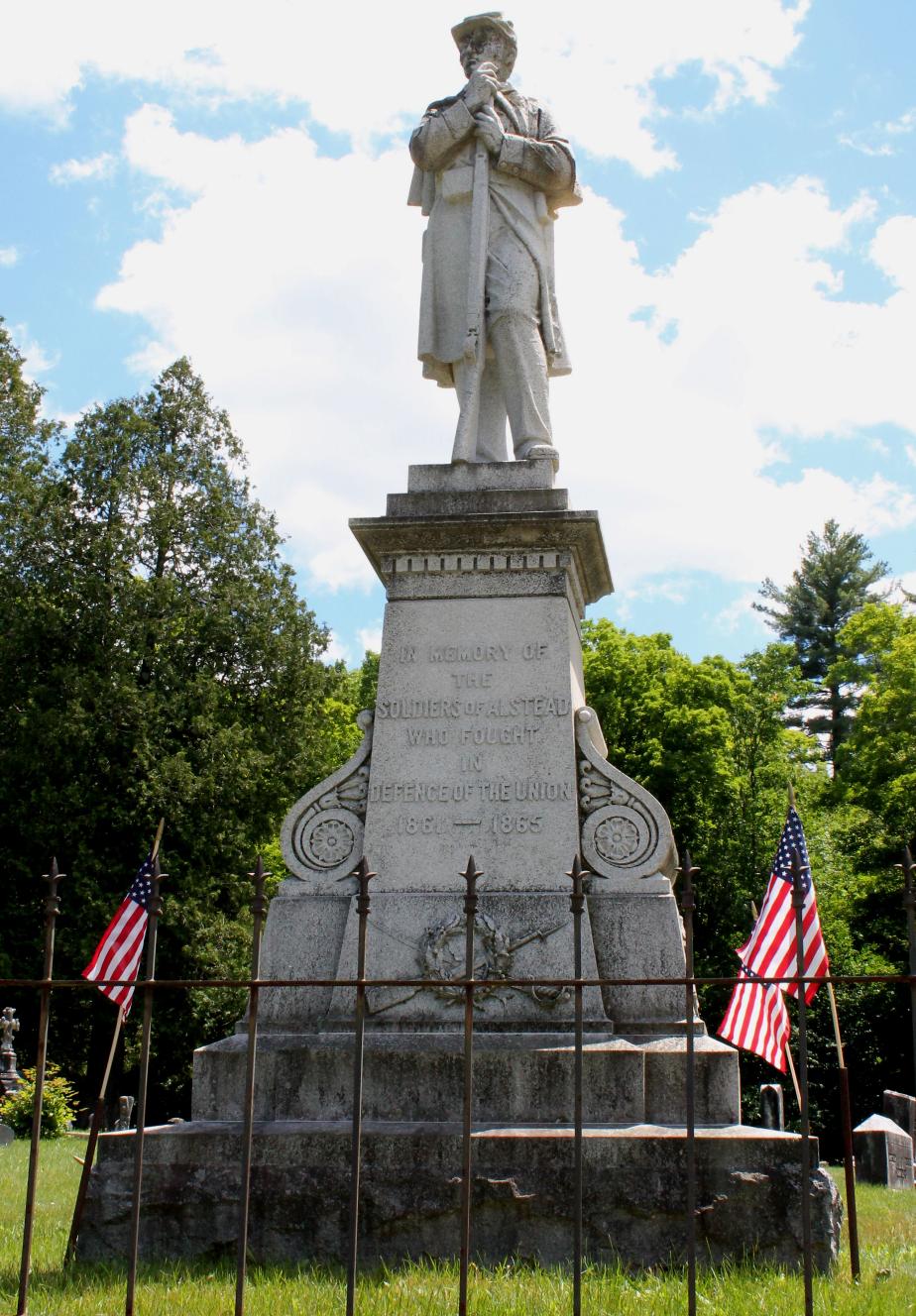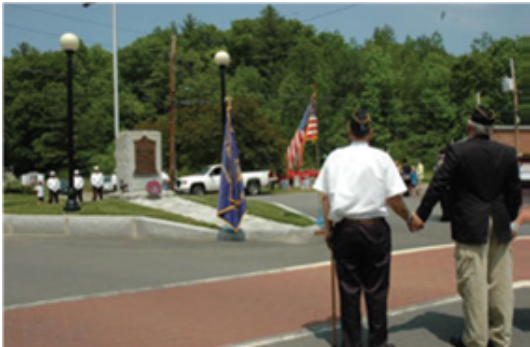-
If you enjoy the forum please consider supporting it by signing up for a NES Membership The benefits pay for the membership many times over.
-
Be sure to enter the NES/Pioneer Valley Arms April Giveaway ***Smith & Wesson SD9VE 9MM***
US Supreme Court OT 2019
- Thread starter Comm2A
- Start date
CatSnoutSoup
NES Member
I have no words for how disheartening this is, just none.

- Joined
- Feb 26, 2005
- Messages
- 57,167
- Likes
- 21,428
I agree on both counts.Zero surprise from me. I continue to stand by my position that SCOTUS will not take another 2A case.
HorizontalHunter
NES Member
Zero surprise from me. I continue to stand by my position that SCOTUS will not take another 2A case.
I try to be optimistic that they will eventually take a worthwhile 2A case. God help us if Biden is elected and makes the next Supreme Court nomination.
Bob
June4th
NES Member
I just had a nap, did I miss CWII?Another unfortunate step toward Civil War #3
- Joined
- Jan 5, 2008
- Messages
- 8,488
- Likes
- 6,403
Trump Says His Civil War Will Be Even Better Than Lincoln'sI just had a nap, did I miss CWII?
KBCraig
NES Member
America has never had a civil war, so there's that...I just had a nap, did I miss CWII?
Cap'n Mike
NES Member
I just had a nap, did I miss CWII?

Definition of CIVIL WAR
a war between opposing groups of citizens of the same country —often used in the capitalized names of specific wars… See the full definition
Definition of civil war
: a war between opposing groups of citizens of the same country
Everyone at Lexington and Concord was British.
CW#1 Started at the North Bridge on April 19 1775.
CW#2 Started at Fort Sumter on April 12 1861.
CW#3 ??? Maybe it already started, only through the lens of history will anyone know.
Cap'n Mike
NES Member
If your saying that "The American Civil War" was between the USA and the Confederacy, as 2 different countries, there is some truth to that.America has never had a civil war, so there's that...
I see you are in NH, so here are the first couple NH monuments I found:America has never had a civil war, so there's that...


Erected in 1910 and dedicated on Tuesday, 21 June 1910, with more than three thousand people attending the event. The monument cost $2500. The south side of the monument's base was inscribed with:
"Erected in 1910 - by the Loyal Sons and Daughters of Raymond in Memory of Her Soldiers and Sailors Who Served in the War that Preserved the Union". The other three sides were inscribed with the names of the following Raymond men who served during the Civil War (note: the inscriptions were not in alphabetical order by surname, they are listed as such here to aid in finding a soldier's name).
| Abbott, Richard S. Bartlett, Samuel G. Batchelder, Daniel Bean, Daniel R. Brant, John B. Brown, George W. Brown, Johathan F. Brown, John Card, James C. Cram, George B. Cram, John E. Cram, Orin B. Currier, Hazen Davis, Benjamin Davis, Charles A. Dearborn, John H. Dodge, Charles E. Dodge, Orin T. Dwight, Cyrus W Edgerly, Charles H. Emery, Nathaniel W. Ferren, H. Bell Fogg, Alvin Folsom, John D. Fullonton, George S. Fullonton, J. Francis Gile, Elisha T. Giles, John Gilman, George W. Gilman, Guilford F. Gilman, John S. Gleason, Edward T. Gleason, Hiram G. Gleason, Joshua L. Gleason, Timothy | Gove, George S. Greene, William B. Griffin, William Y. Healey, Abraham S. Healey, David S. Healey, George W. Healey, Samuel Healey, Samuel G. Heath, Samuel M. Hill, John H. Hill, Robert Hill, William E. Holman, Jonathan P. Johnson, George C. Jones, Charles W. Kennard, Robert P. Lane, Josiah W. Littlefield, J. Anson Lowell, Abner Magoon, David L. Magoon, Nathan W. Marsh, John Moore, Elbridge G Morrison, David Morrison, Franklin P Morrison, Horatio G.C. Morrison, James K. Nay, Samuel C. Norton, Alden N. Norton, David W. Norton, Nathan Nowell, Andrew C. Osgood, Daniel W. Osgood, David T. Pecker, James | Perkins, Charles H. Poor, Cyrus E. Poore, Charles Roberts, Andrew J. Roberts, Aroy Q. Robinson, George G. Robinson, S. Henry Robinson, Samuel H. Rowe, George D. Rundlett, Charles L. Sargent, George P. Scribner, James G. Smith, John M. Smith, Joshua Smith, William Spaulding, Samuel Stevens, Charles Stevens, James L. Thurston, William H. Tilton, Leonard G. Tilton, Rufus A. Tilton, Sewell D. Towle, David W. Towle, Elisha Tripp, George True, Agustus A. True, Elias Jr. True, Warren Tuttle, Thomas R Wallace, Chase O. Wallace, William A. Welch, James Worthen, John F. Worthen, Asa T. Young, Isaiah G. |
| Over the years, the monument had been damaged and was in need of repairs. With the assistance of the Charles Canney Camp #5, the town had raised the funds needed to restore their Civil War monument. On Memorial Day, 2005, the rededication ceremony took place. For more on this event, see the project page: Civil War Soldier's Monument Restoration Project Too many to list here: 
New HampshireAdditional Information Can Be Obtained At: Congressional Medal of Honor - http://www.cmohs.org/ Faces of Valor, Honor the Fallen - http://projects.militarytimes.com/valor/ Historical Marker Database...
www.americanmemorialsdirectory.com
|
KBCraig
NES Member
1775-1783 and 1861-1865 were both wars for secession and independence.If your saying that "The American Civil War" was between the USA and the Confederacy, as 2 different countries, there is some truth to that.
A civil war is a war between factions trying to take over the same government. That was not the case in either of those conflicts.
Cap'n Mike
NES Member
That is not the definition of a Civil War.A civil war is a war between factions trying to take over the same government. That was not the case in either of those conflicts.
Last edited:
KBCraig
NES Member
That is exactly the definition of a civil war. It is a war between opposing factions of the same country. It is an "intrastate" war.That is not the definition of a Civil War.
The American Revolution was not between British subjects: it was between Britain and the Americans who had declared themselves free and independent.
The events of 1861-65 was between the United States, and the Confederate states who had declared themselves free and independent.
In case I have to spell it out, let me say it plainly: the cause of the CSA, which was primarily slavery but included other economic issues, was wrong. Totally, 100%, dead wrong. I do not glorify, romanticize, or defend the cause of the South.
However, I will always defend the right of one group of people to break away from a government they find intolerable, because that is the most American idea that has ever existed.
Cap'n Mike
NES Member
As I said before, there is some truth to what you say regarding whats called "The American Civil War" Being between 2 separate countries, and had the CSA won history would see it differently than it does today.That is exactly the definition of a civil war. It is a war between opposing factions of the same country. It is an "intrastate" war.
The American Revolution was not between British subjects: it was between Britain and the Americans who had declared themselves free and independent.
Whats called the "American Revolutionary War" fits every definition I can find for a Civil War.
As I said before, everyone at the North Bridge considered themselves British.
The 14,000 Massachusetts Militia Men that laid siege to the 3500 British Army Regulars in the City of Boston after the battle of Lexington and Concord were all British.
Being Americans came later.
Some other definitions of Civil War

Dictionary.com | Meanings & Definitions of English Words
The world's leading online dictionary: English definitions, synonyms, word origins, example sentences, word games, and more. A trusted authority for 25+ years!
 www.dictionary.com
www.dictionary.com
noun
a war between political factions or regions within the same country.

Civil war | Definition, Causes, & Theories | Britannica
Civil war is a violent conflict between a state and one or more organized non-state actors in the state’s territory.
Civil war, a violent conflict between a state and one or more organized non-state actors in the state’s territory. Civil wars are thus distinguished from interstate conflicts (in which states fight other states), violent conflicts or riots not involving states (sometimes labeled intercommunal conflicts), and state repression against individuals who cannot be considered an organized or cohesive group, including genocides, and similar violence by non-state actors, such as terrorism or violent crime.
That is exactly the definition of a civil war. It is a war between opposing factions of the same country. It is an "intrastate" war.
The American Revolution was not between British subjects: it was between Britain and the Americans who had declared themselves free and independent.
The events of 1861-65 was between the United States, and the Confederate states who had declared themselves free and independent.
In case I have to spell it out, let me say it plainly: the cause of the CSA, which was primarily slavery but included other economic issues, was wrong. Totally, 100%, dead wrong. I do not glorify, romanticize, or defend the cause of the South.
However, I will always defend the right of one group of people to break away from a government they find intolerable, because that is the most American idea that has ever existed.
As I said before, there is some truth to what you say regarding whats called "The American Civil War" Being between 2 separate countries, and had the CSA won history would see it differently than it does today.
Whats called the "American Revolutionary War" fits every definition I can find for a Civil War.
As I said before, everyone at the North Bridge considered themselves British.
The 14,000 Massachusetts Militia Men that laid siege to the 3500 British Army Regulars in the City of Boston after the battle of Lexington and Concord were all British.
Being Americans came later.
Some other definitions of Civil War
civil war
Dictionary.com | Meanings & Definitions of English Words
The world's leading online dictionary: English definitions, synonyms, word origins, example sentences, word games, and more. A trusted authority for 25+ years!www.dictionary.com
noun
a war between political factions or regions within the same country.

Civil war | Definition, Causes, & Theories | Britannica
Civil war is a violent conflict between a state and one or more organized non-state actors in the state’s territory.www.britannica.com
Civil war, a violent conflict between a state and one or more organized non-state actors in the state’s territory. Civil wars are thus distinguished from interstate conflicts (in which states fight other states), violent conflicts or riots not involving states (sometimes labeled intercommunal conflicts), and state repression against individuals who cannot be considered an organized or cohesive group, including genocides, and similar violence by non-state actors, such as terrorism or violent crime.
I imagine the results of the war dictate whether it was revolutionary or civil. If Britain won the revolutionary war then the history books would say it was a civil war. If the south won the civil war then it would have been written in history as a war of independence.
So what would the process be for NH to peacefully secede from the USA.... asking for a friend.That is exactly the definition of a civil war. It is a war between opposing factions of the same country. It is an "intrastate" war.
The American Revolution was not between British subjects: it was between Britain and the Americans who had declared themselves free and independent.
The events of 1861-65 was between the United States, and the Confederate states who had declared themselves free and independent.
In case I have to spell it out, let me say it plainly: the cause of the CSA, which was primarily slavery but included other economic issues, was wrong. Totally, 100%, dead wrong. I do not glorify, romanticize, or defend the cause of the South.
However, I will always defend the right of one group of people to break away from a government they find intolerable, because that is the most American idea that has ever existed.
Fritz the Cat
NES Member
Start by driving out the invading Ma**h***s?So what would the process be for NH to peacefully secede from the USA.... asking for a friend.
Fritz the Cat
NES Member
I just discovered Ma**h*** is a bad word.
CatSnoutSoup
NES Member
Before we get too far down the define a civil war rabbit hole here in the @Comm2A forum.
A quick thanks to @Knuckle Dragger for having maintained this thread — we’ll get em’ next time, see you next fall.

A quick thanks to @Knuckle Dragger for having maintained this thread — we’ll get em’ next time, see you next fall.
KBCraig
NES Member
There would be nothing peaceful about it, because we've already seen how USA doesn't give up.So what would the process be for NH to peacefully secede from the USA.... asking for a friend.
Ty Knuckle Dragger.. So what will happens now? has Healy won indefinitely? Or do we have other avenues we can pursue?Before we get too far down the define a civil war rabbit hole here in the @Comm2A forum.
A quick thanks to @Knuckle Dragger for having maintained this thread — we’ll get em’ next time, see you next fall.

- Joined
- Jan 5, 2008
- Messages
- 8,488
- Likes
- 6,403
CrackPot
NES Member
Roberts is already a switch hitter that appears to prefer the left side of the plate. We don't need Kavanaugh trying out switch hitting...Here are some interesting stats from SCOTUSblog on the Court's OT2019 term. Affirms much of what I thought about Thomas. Also interesting how often Kavanaugh ended up in the majority. He seems to be trying out for the 'swing' position.
This could be a game-changer: 9-0 ruling on Electors. Anyone have the data on which states have these laws, and which have laws that force Electors to vote according to the National popular vote? Thinking swing states are even more crucial now depending on their laws.
Link - Supreme Court - Faithless Electors
Link - Supreme Court - Faithless Electors
- Joined
- Jan 5, 2008
- Messages
- 8,488
- Likes
- 6,403
Don't think so. Freewheeling electors were never, ever a serious concern. Several states have these laws, but from what I'm reading, even without a specific law, states can still keep thier electors from running amok.This could be a game-changer: 9-0 ruling on Electors. Anyone have the data on which states have these laws, and which have laws that force Electors to vote according to the National popular vote? Thinking swing states are even more crucial now depending on their laws.
Link - Supreme Court - Faithless Electors
Kagan is funny. This is how she cites herself in foot note one: "See Me. Rev. Stat. Ann., Tit. 21–A, §802 (2006); Neb. Rev. Stat. §32–710 (2016). "
CatSnoutSoup
NES Member
Similar threads
- Replies
- 23
- Views
- 11K
- Replies
- 53
- Views
- 26K


